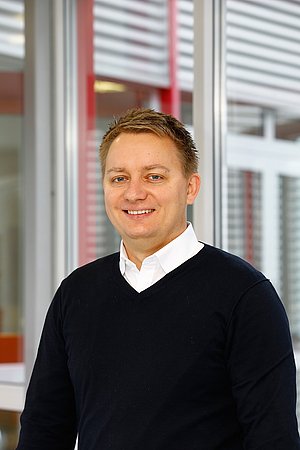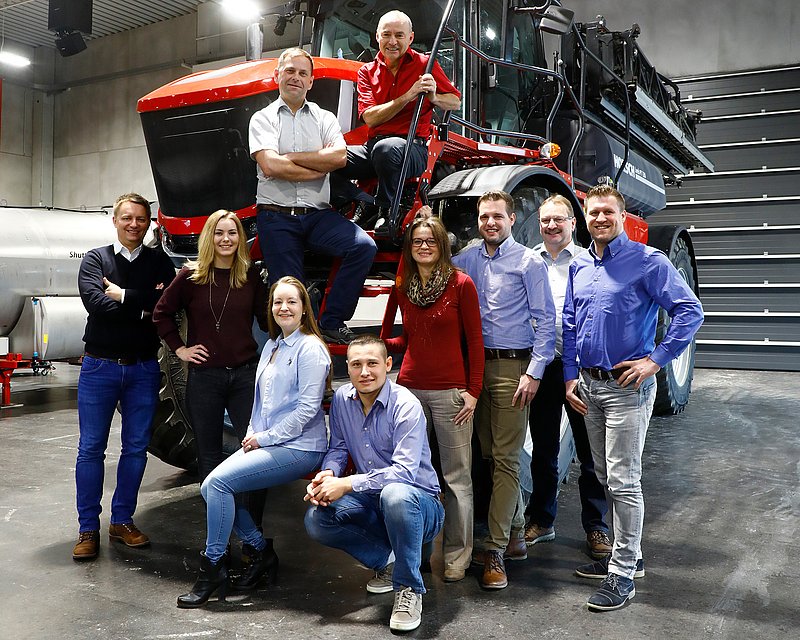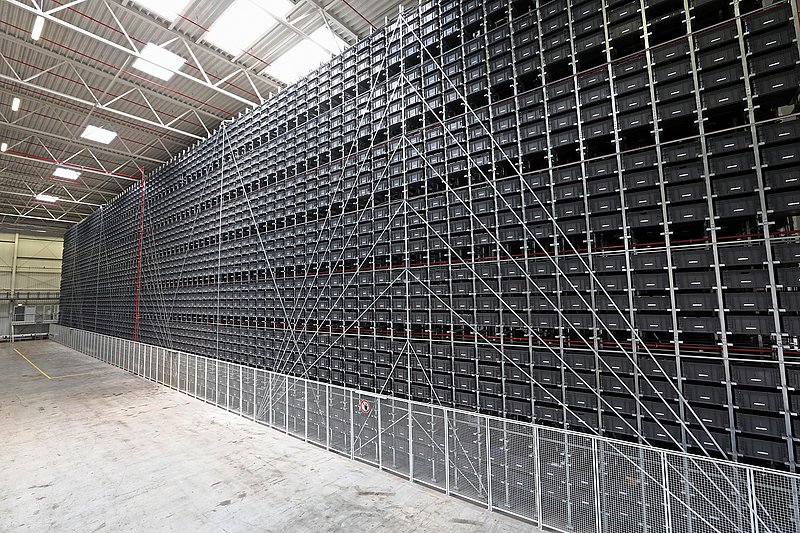Constantly in motion
Team Spare Parts
Every machine is only as good as the service. This is also true for the tillage tools, the seed drills and the plant protection sprayers from HORSCH. And a good service only works if the availability of the spare parts is guaranteed. At HORSCH the spare parts team which is part of the service department is responsible for the latter.

We met Fabian Roth, the teamleader, at Sitzenhof. He has been working for HORSCH since August 2018. Prior to this he worked in a bank in the Trade Finance sector.
terraHORSCH: Mr Roth, how do you cope with your new tasks?
Fabian Roth: I had an easy start at HORSCH. I was very well received. My first day at work was the 1st of August – virtually right in the middle of the peak season – and I quickly learned what to expect – a complex and interesting task. And this has proven true in the past ten months.
What are the tasks for your teams?
Fabian Roth: Our tasks are various: telephone consultation, dealer and customer support, taking of orders, order processing, export transactions, invoicing, transport organisation, tracking of missing parts, complaint management, spare parts planning, price calculations, trainings and so on. Our daily business mainly consists of working through the orders. In this sector we still have many manual processes. All in all, it is our objective to develop the spare parts management even further and to meet the changing requirements. We are part of the service & parts department and are located at Sitzenhof. Our team consists of 10 colleagues. It is a sound mix of young employees we partly trained ourselves as well as of very experienced and long-time employees.

That’s a wide range! Is there a particular assignment of the tasks?
Fabian Roth: Last year in October we introduced a new structure and rearranged the tasks accordingly. We basically take a generalist approach, i.e. every colleague deals with the daily business. Every member of the team has been assigned a country, except for Germany – there is no specific assignment. The reason is that the German market is rather large and there are a lot of requests made by telephone. Orders from abroad normally arrive as a bundle. Thus, it is easier for both sides to handle customs and transport matters. In addition to these tasks, we also have specialists for certain topics, e.g. customs or spare parts planning. This allows us to operate flexibly in the future.
When is the high season for your team?
Fabian Roth: As we cover the whole range of the sectors tillage, seed drills and plant protection, there always is high season. However, there are peaks, e.g. at the time of the winter orders from November till March and during the season August till October. But this does not only concern our team, but also all the other departments from purchasing to logistics.
Some deliveries of this season’s winter orders were a little bit delayed. And we again want to apologise for the inconveniences caused. But we also realised: The steps HORSCH is taking with the construction of the Forest Factory and the corresponding expansion of logistics are justified and necessary. Moreover, we plan to better control capacity utilisation – either by modifying the winter orders or by special campaigns. But I do not want to reveal too much at this stage.
What are the biggest challenges in the spare parts sector?
Fabian Roth: : Obviously the availability of the parts and fast logistics. With a constantly increasing range of products, it is a real challenge to always have the right part on stock. In addition to our main warehouse here at Sitzenhof we have warehouses in France, Great Britain, the Ukraine, Russia, China, the USA and Brazil. However, it still is essential to continue to fine-tune availabilities as well as cheap and fast transportation routes.

You mentioned the manual processes: Are there still a lot of them or have some of them already become digital?
Fabian Roth: In the past months we have already set the course together with our process managers and the IT department. As it is typical for HORSCH we take a lot of small steps. I think the service portal for dealers our colleagues from the service department introduced last year already was a milestone on the way towards digitisation. In the spare parts sector, we have to face a continuously increasing number of orders. They still partly arrive by fax. This is also due to our system. It is no longer up to date, ineffective and is full of sources of error with regard to the transmission into our ERP system. For the future, we need new solutions. Our idea would be a direct connection to the ERP system of our dealers. When we talk to our dealers, we notice that they would like to have a simple handling with “one system”. In return we will receive data that will be transferred directly into our system. Thus, there no longer is such a time-consuming manual effort and a fax is no longer required.